Question And Answer
Publications
Articles, publications, books, tools and multimedia features from the U.S. Institute of Peace provide the latest news, analysis, research findings, practitioner guides and reports, all related to the conflict zones and issues that are at the center of the Institute’s work to prevent and reduce violent conflict.
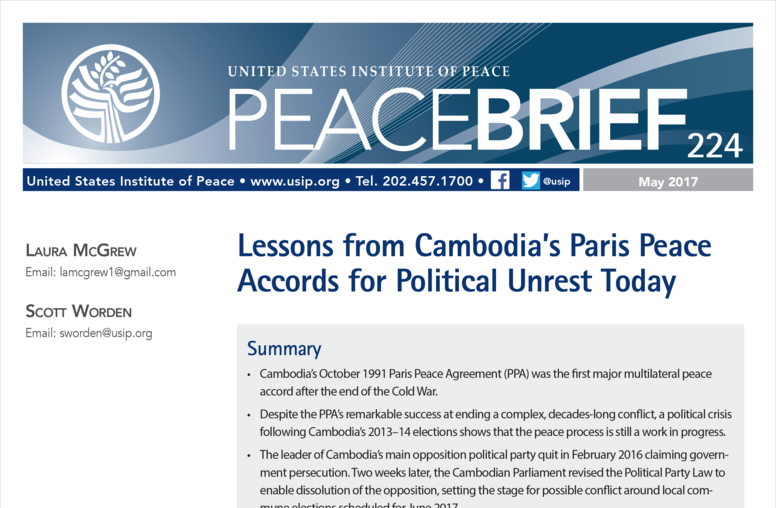
Lessons from Cambodia’s Paris Peace Accords for Political Unrest Today
In December 2016, to mark the twenty-fifth anniversary of the 1991 Paris Peace Agreement that ended the decade-long war between Cambodia and Vietnam, USIP hosted a conference to examine the implementation of that agreement and how the decisions made in the past have affected increasing political unrest in the country. Panelists included several key actors...
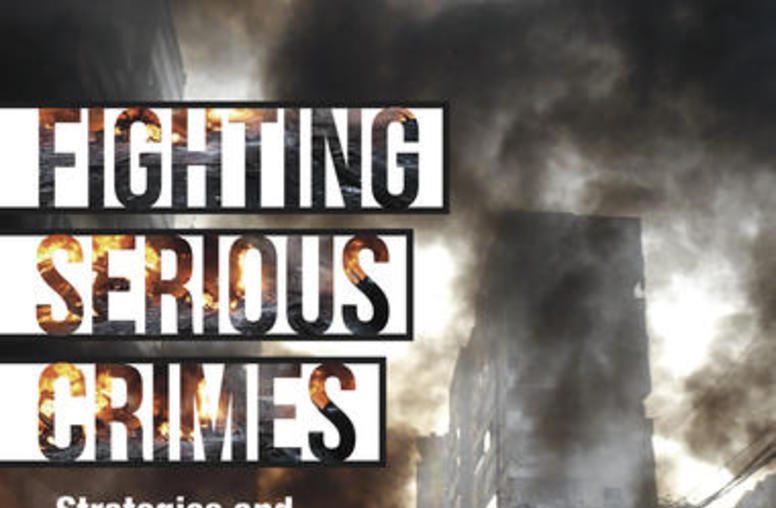
Fighting Serious Crimes
Fighting Serious Crimes: Strategies and Tactics for Conflict-Affected Societies is an invaluable resource for anyone battling serious crimes in societies seeking to avoid conflict, to escape from violence, or to recover and rebuild. Packed with practical guidance, this volume includes real world examples from more than twenty of today’s conflict zones, including Libya, Yemen, Iraq, Afghanistan, Somalia, and Colombia.
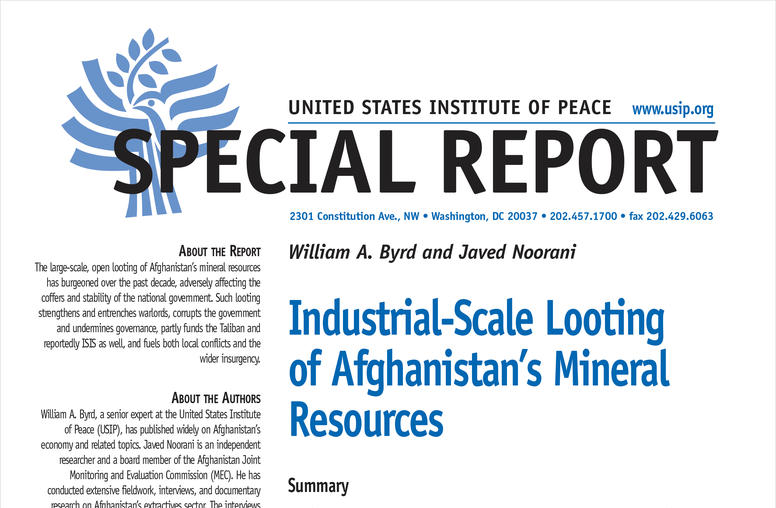
Industrial-Scale Looting of Afghanistan’s Mineral Resources
Afghanistan has been plagued by large-scale, open looting of mineral resources, involving significant mining operations, bulk transport of minerals along main roads, and crossing the border at just a few, government-controlled points. This mineral looting, amounting to hundreds of millions of dollars per year, involves widespread corruption, entrenches warlords and their networks, and fuels both local conflicts and the wider insurgency in Afghanistan. The government needs to begin to get a better handle on resource exploitation and to collect more substantial royalties and taxes from ongoing mining activities.
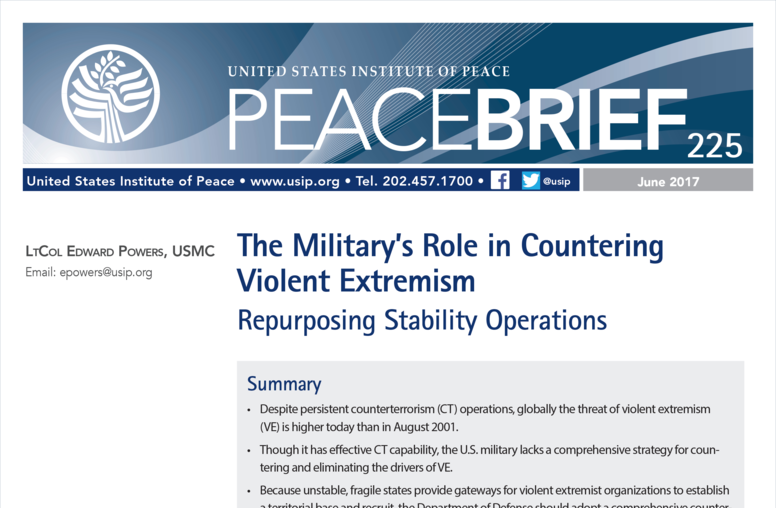
The Military’s Role in Countering Violent Extremism
The U.S. military, through its stabilizing mission, has a role to play in countering and eliminating the drivers of violent extremism (VE). Though the military has effective counterterrorism (CT) capability, there is a gap in its counter-VE (CVE) strategies that can be closed by linking reactive CT operations to preventative efforts to remove the drivers of VE. ...
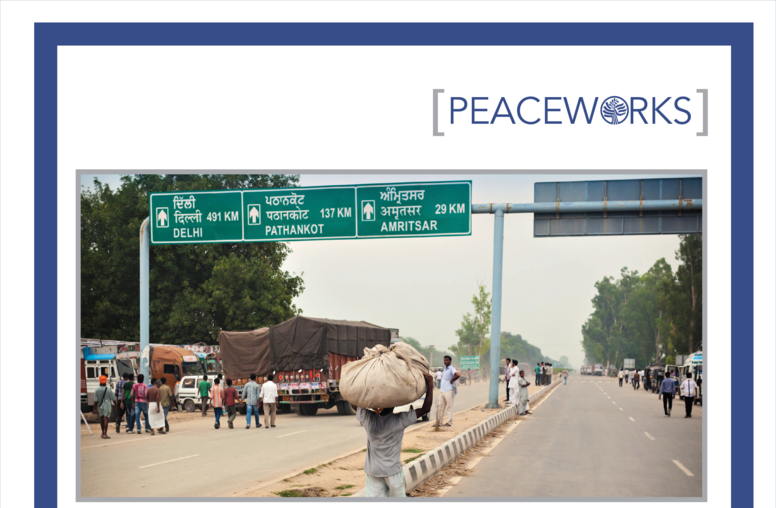
Misperceptions About India-Pakistan Trade
Larger political issues between India and Pakistan—from border conflicts to mutual government mistrust to long-standing rivalry—have been the main driver for the limited trade and economic cooperation between the two countries. This report, however, makes the case that working within existing protocols to enhance existing trade and cooperation, rather than addressing the more obvious and chronic political issues, is necessary to peacebuilding in the region.
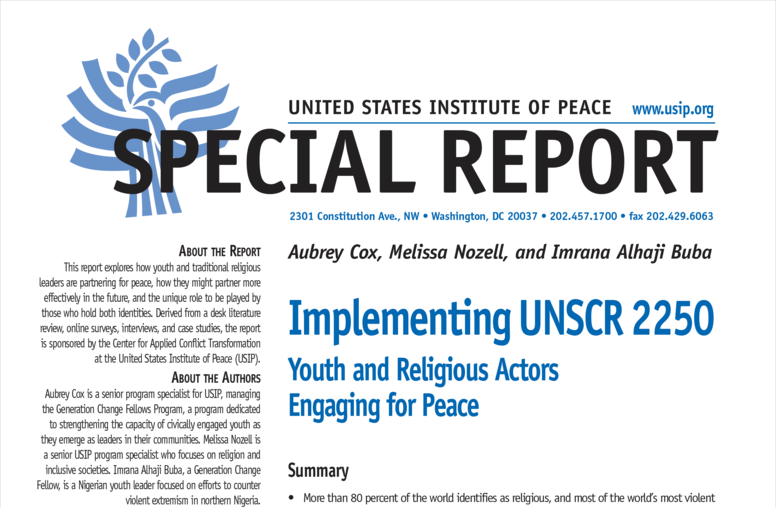
Implementing UNSCR 2250
In the context of UN Security Council Resolution 2250 on Youth, Peace, and Security, this report examines collaborations between youth and religious leaders in conflict-affected states. Using case studies, surveys, and interviews, it highlights the gaps, challenges, and opportunities for how religious actors and youth can and do partner effectively in the face of violent conflict.
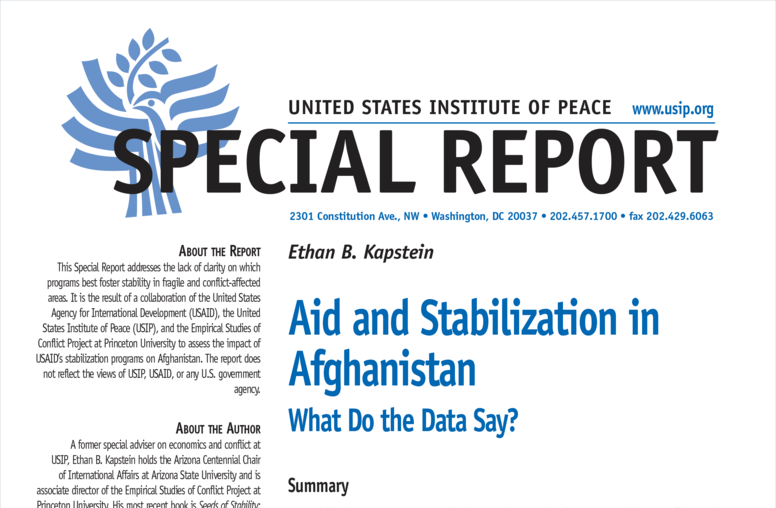
Aid and Stabilization in Afghanistan
The question for international assistance efforts in fragile and conflict-affected countries is the extent to which aid programs are associated with changes in key metrics, including security, popular support for the government, community cohesion and resilience, population health, economic well-being, and internal violence. With an eye to lessons learned for the future, this report examines USAID stabilization programming in Afghanistan, focusing on whether it reduced violence, increased support for the government, and promoted other desirable political and economic outcomes.
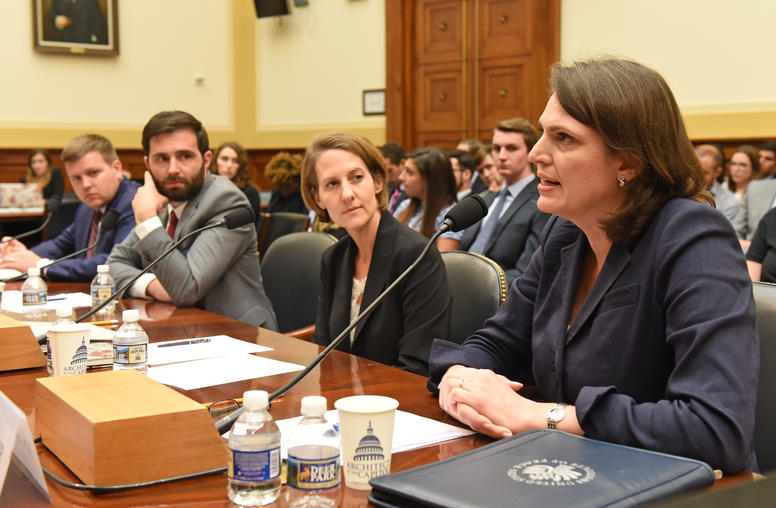
Allies Under Attack: The Terrorist Threat to Europe
USIP Director of Countering Violent Extremism Georgia Holmer testimony before the House Foreign Affairs Subcommittee on Terrorism, Nonproliferation and Trade & Subcommittee on Europe, Eurasia, and Emerging Threats.
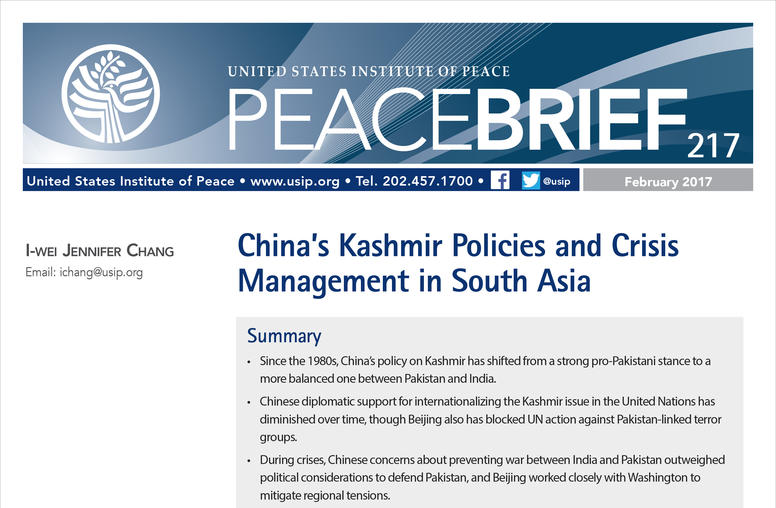
China’s Kashmir Policies and Crisis Management in South Asia
China’s policy on the Kashmir conflict between India and Pakistan has a significant impact on regional stabilization and crisis management efforts in South Asia. Beijing also plays an important third-party role in helping deescalate hostilities between the two countries. This brief discusses the evolution of China’s Kashmir policies over the past several decades and examines Chinese cooperation with the United States during periods of crises between the South Asian rivals.
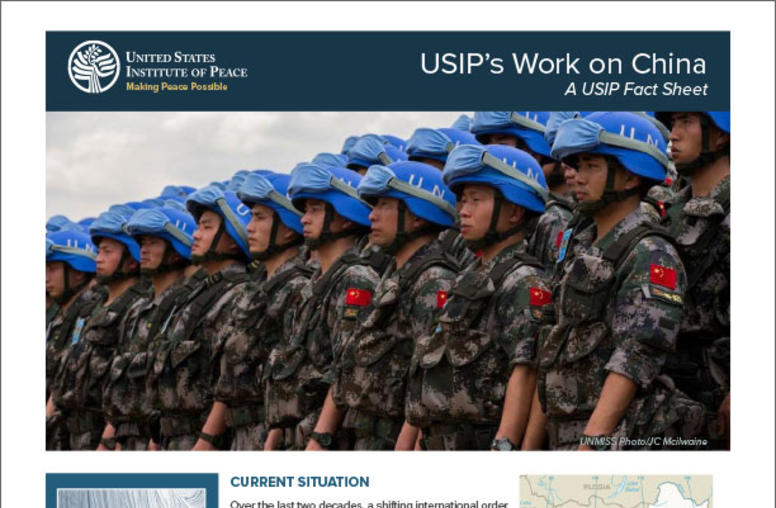
The Current Situation in China
Through bipartisan convenings, policy dialogues, coordination with allies and partners, and independent research and analysis, USIP recommends options to peacefully manage strategic competition between the United States and China.